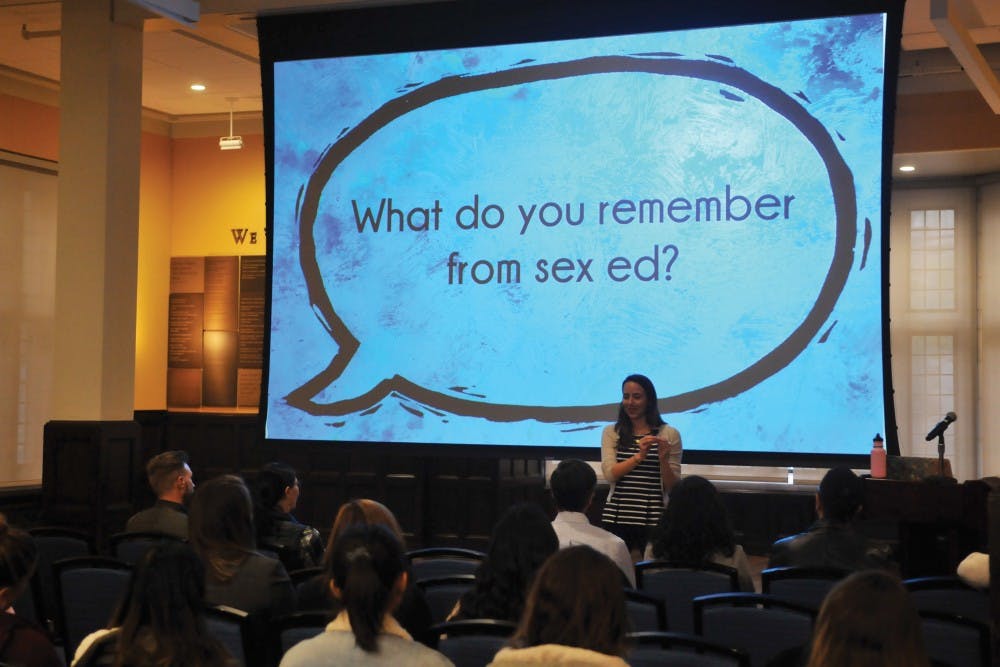A Stanford University administrator explained her vision of a new and positive approach to sexual education during an event Thursday.
At a talk in Houston Hall, Stanford’s Director of Positive Sexuality Brianna Booth spoke to students about the notion of positive sexuality, which views sexuality as an opportunity rather than a problem.
Booth, who received her Masters of Applied Positive Psychology from Penn in 2011 and who later worked briefly as an assistant instructor at Penn, brought the idea of positive sexuality to Stanford University when she began working there in 2016.
Booth told the audience that she approaches sexuality while thinking not about its challenges but instead about its potential for transformation.
“Can we hope for anything beyond the absence of problems?” Booth asked the audience.
During the talk, Booth pointed out that sex education tends to label sexuality with extreme attributes of negativity and superficiality. The negative side, she explained, emphasizes the dangerous and shameful aspects of sexuality, while the superficial side treats sexuality as a peripheral, trivial part of life.
Booth said that this pervasive perspective requires educators to counter with an outlook that strikes a balance between positivity and multi-dimensionality.
“My goal is to create education that is kind, not severe, that recognizes sexuality as an integrated part of our humanity,” Booth said. “Sexuality can be supported as an asset, as a strength.”
RELATED:
Betsy DeVos is changing sexual misconduct guidelines nationwide. Here's how Penn might follow suit
Boston University professor discusses impacts of porn at Penn event
At Stanford, Booth created the “Beyond Sex Ed” program, part of the Stanford Anti-Violence Educators initiative she leads, which aims to teach students about consent and sexual assault in order to foster a culture of respect for sexuality.

Booth’s research organizes sexuality into the main components of boundaries, protection of feelings and egos, and desire for connection. Booth said that her work with Stanford students tries to cultivate attunement, or the skill of successfully integrating those components into their lives, within them.
“Sexuality is a vibrant and vulnerable part of being human,” Booth added. “Sexuality cuts us to our core—it’s why our feelings are so intense.”
She guided an activity that invited the audience to close their eyes and imagine how different words such as “no,” “yes,” and “maybe” felt to them.
Wharton freshman Rachel Vaughan, who attended the event, said that this activity was the most memorable for her.
“When [Booth] had us visualize and feel different things, ‘safety’ felt like a hug, ‘yes’ felt like a fist pump, but ‘no’ was like a full body shove,” Vaughan said. “She talked about ‘no’ being empowering, and I would really love to explore that.”

Penn's Chief Wellness Officer Benoit Dubé and Professor James Pawelski of the Penn Positive Psychology Center co-organized the event. Pawelski said that he enjoyed the opportunity to discuss positive sexuality.
“When we talk about sexuality in the public sphere, it’s about a problem. It’s a headline, a scandal,” Pawelski said. ”To be sitting and talking about sexuality in a positive, integrative, and complex perspective just seems like how we should be approaching it.”
Pawelski mentioned the possibility of working with Booth to expand the conversation surrounding positive sexuality to Penn.









